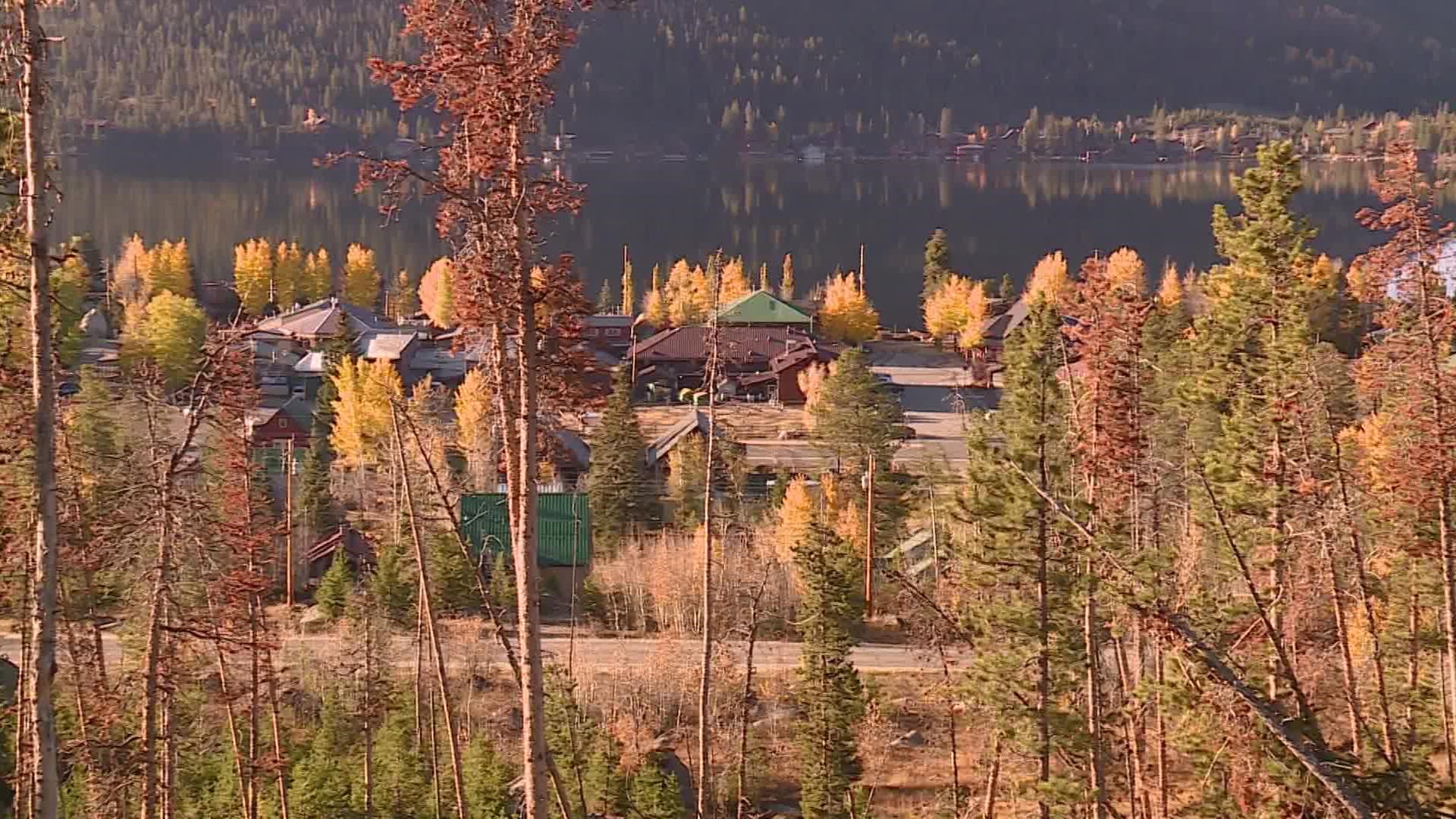GRAND LAKE, Colo. — The town of Grand Lake is taking a new approach to protecting its waterways, which includes the lake itself.
The Board of Trustees and Town Attorney passed a "Rights of Nature" resolution for the Grand Lake Watershed.
"The town can speak out as an entity, or individual leaders or citizens can now speak out on behalf of the watershed," said Gary Wockner, director of the non-profit Save the Colorado. "If there's development or pollution issues that might impact the watershed, they can speak on behalf of the lake or the streams that feed into it, in addition to making personal objections."
He said a resolution is not a legally binding ordinance, but more of a statement by the town about how they want the watershed to be managed.
“Appreciating nature is one of the big ways that the community is trying to say this is who we are, and this is what we are trying to represent,” said Wockner.
The beauty of Grand Lake may be undeniable, but if it actually had its own voice, it might plead for us to see a little deeper.
“What would the lake say?" he said. "The lake would probably say enough already. Enough already.”
Wockner said the beauty of the lake and even its health is being threatened development. Not just in Grand County, but on the Front Range.
The water gets sent through the 13-mile-long Alva Adams tunnel, which runs under the Continental Divide to serve the needs of the Front Range. He said the pumping involved in that process is polluting Grand Lake.
"The Colorado River now flows into Shadow Mountain reservoir and Lake Granby, and it actually gets pumped backwards into Grand Lake before going down the tunnel to the Front Range," he said. "That pumping brings a plume of algae and sediments into Grand Lake."
That movement of water is part of the Colorado-Big Thompson project designed to bring water from the western slope to the Front Range. 80% of the water in Colorado runs off to the west of the Continental Divide, and 80% of the state's population is east of the Divide.
And the need for western water on the eastern plains is only projected to increase.
"If fact, there's a new reservoir called Chimney Hollow near Loveland that needs to be filled," said Wockner. "So additional water will need to be removed Grand County through Grand Lake."
Wockner said that Chimney Hollow is a project that his organization 'Save the Colorado' fought for several years. Although the reservoir was approved, he said his group did win a $15 million settlement that will be used in Grand County and the headwaters of the Colorado River.
He said the Rights of Nature resolution will provide a new voice and perspective about how to manage future decisions regarding the watershed around Grand Lake.
Part of the Colorado River would be included in that protection. Grand Lake is often referred to as the birthplace of the Colorado River. The headwaters are just north of the area in Rocky Mountain National Park.
“You might say, if you can’t get it right in Grand Lake and the headwaters, we’re not going to get it right downstream," said Wockner. "The cycle of water is really the cycle of life on the planet.”
Other Rights of Nature Communities
Rights of Nature resolutions have also been passed in the towns of Nederland and Ridgway.
Wockner said the next step would be to appoint people legal guardians to the waterways. They are working on that process for the Boulder Creek headwaters near the town of Nederland.
He said there is a worldwide Rights of Nature movement and in some parts of the world the rights are far more than a resolution.
"The Wanganui River in New Zealand has become the first river in the world to be granted 'personhood status'," he said. "It is now the job of some of the Maori tribespeople there to speak on behalf of the river in a court of law."
SUGGESTED VIDEOS: Colorado Climate

